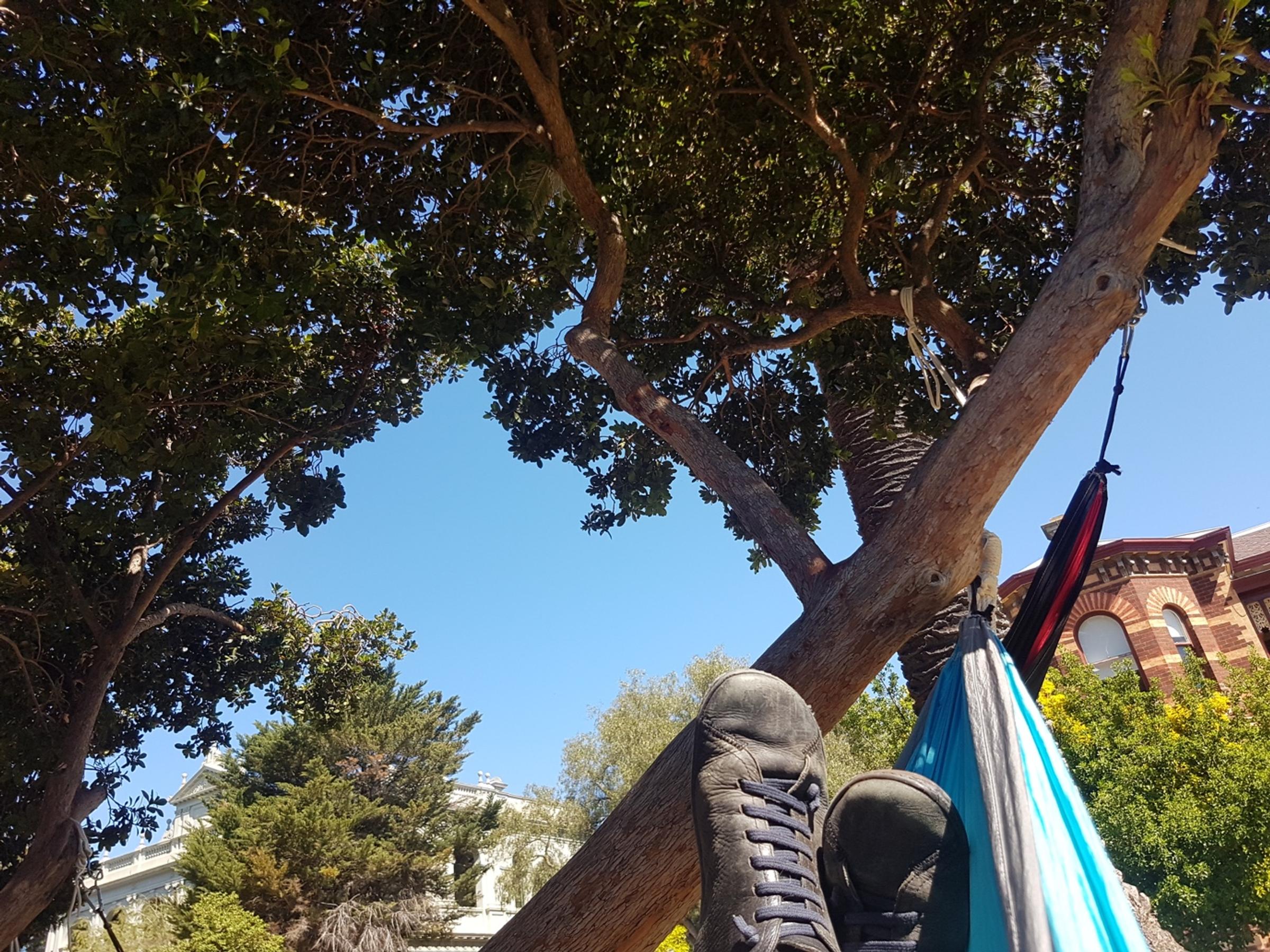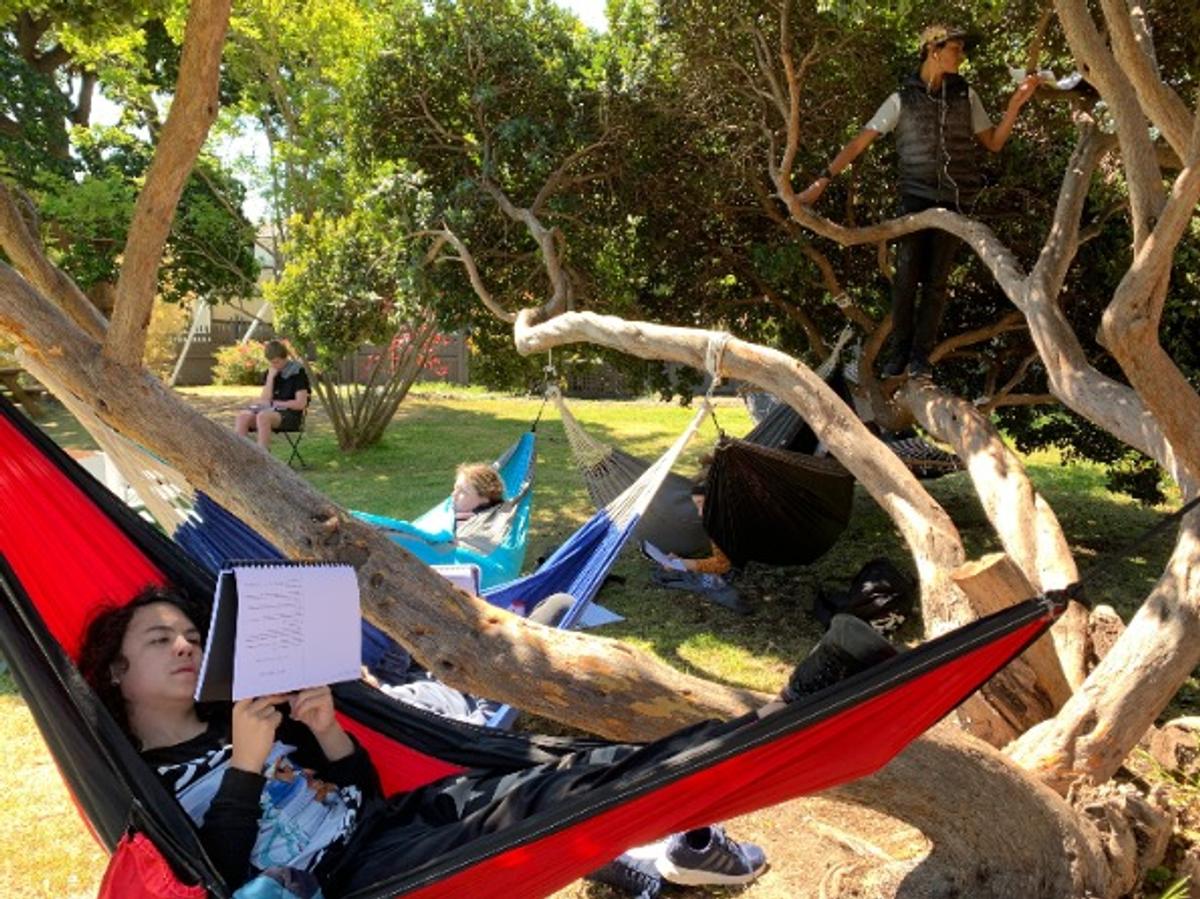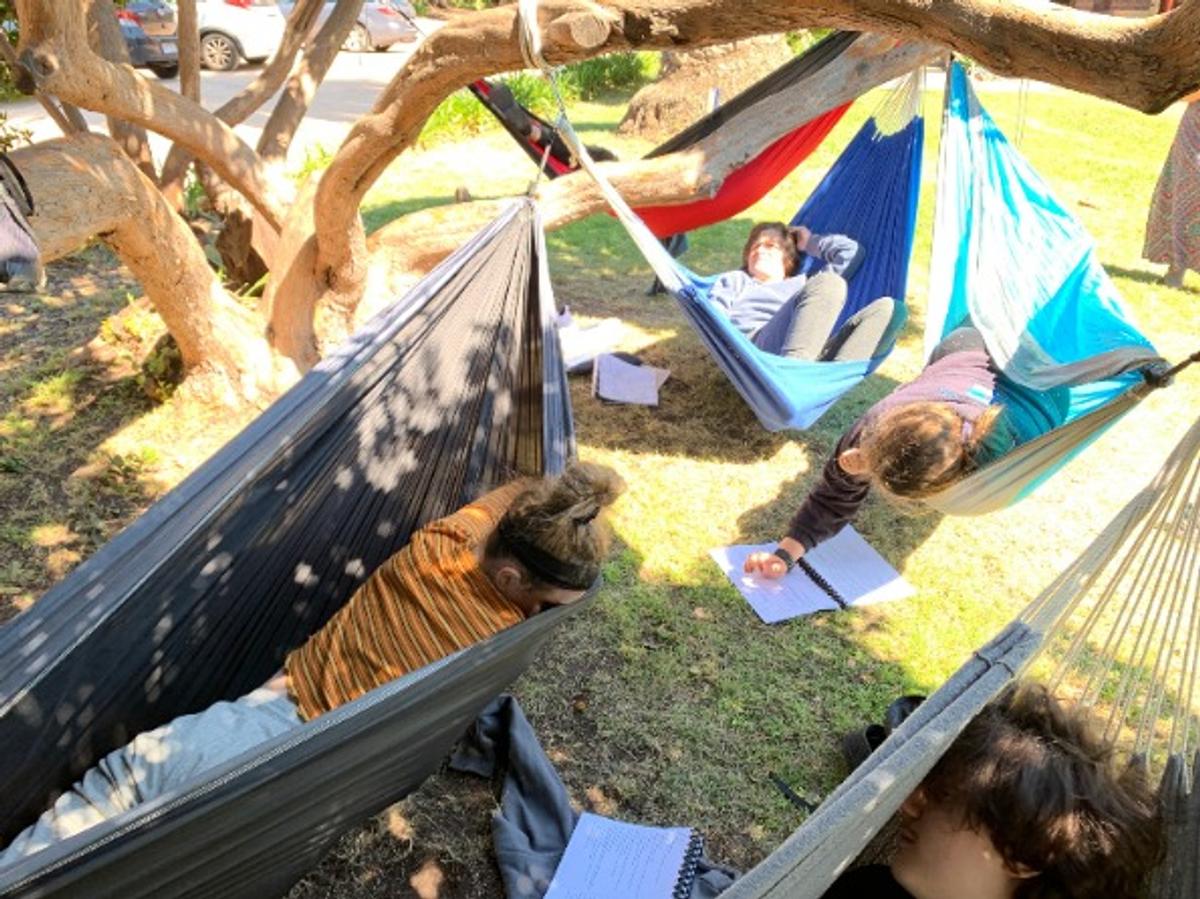Wellbeing

Look up: Find a reason
If I ever get a tattoo, it will be ‘look up’ on the face of a watch on my wrist. Kind of boring I know. However, reminders to do things which can be amazingly beneficial for longer than the moments we choose to consciously partake in them are far from boring.
I’ve been advocating for people to look up for most of my life. It all started when I was 12 and I thought I could see magical stardusty particles of light that seemed to drift down from the sky. I found this fascinating, and that others could see them too if they stopped to look for long enough. As science generally does, about 15 years later I found out that the magic light was actually chemical reactions going on through my eyes and because of the generally solid background the sky served as, I was able to see this phenomenon. Whatever science; it’ll always be magic light to me.
Opportunities to experience looking up (and coming up with a craz… I mean creative new theory) can be had at any moment, inside or out. With technology increasingly attempting to act as a succubus, immersing and enticing us to look at screens or projections for validation and gratification, the potential for finding these moments are rapidly decreasing. It has been estimated that in the last 15 years our attention spans have decreased by a third (Kerr & Maze, 2019). At this rate we’ll be asking our goldfish ‘Hey, what’s going on?’ during the 45th season of The Simpsons.
Luckily, there are many wonderful ways we can prevent such issues occurring: interacting with people and building human connections; observing the world around us instead of the world that is being served to us; meditation and introspection into the inverse spaces within ourselves; and of course, looking up.
A recent report entitled ‘The Art and Science of Looking Up’ (Kerr & Maze, 2019) has found the benefits of looking up and out at the people and world around you, rather than at the screen in front of you, can have lasting benefits for everyone across physical, emotional, mental, relational and creative dimensions. Here are some takeaway points worth mentioning:
- When you look up and out at the world around you, you can grow your brain
- Improve your thinking
- When you daydream your brain forms abstract connections, creative ideas and Aha! moments
- When you look up and out you can increase awareness and access insight
- When we look up and out at the people around you, you can build trust, empathy and a sense of hope and belonging
- Looking up lengthens and deepens your view which helps you to think long term and better solve complex problems
- When we look up & out we can impact how we connect, how we live & the societies we shape together
- When we look up & out and engage directly we can synchronise as a group
- The more curious, open to new information, or skilled we become, the richer the information we take in and the wider the sources we take it from.
Here at Preshil, we think looking up is a perfect sentiment for education. Given this, we are excited to have recently introduced hammocks into the school. The use of hammocks in my personal life has been instrumental in ensuring opportunities to reflect, observe, chillax and be mindful; in short, a wellbeing dream. Some of the many benefits of hammocks can include:
- physical, mental and emotional relaxation
- perspective shifting capacity
- rocking motion is conducive to putting one at ease
- ‘womb effect’ provides a feeling of safety
- pro-social behaviour promotion
- improved sleep
- healthy space and time for being in nature
Speaking of, as authors of the ‘Looking Up’ report Dr Fiona Kerr & Lekki Maze proclaim:
“The science is in. Choosing to look up and out – either at our surroundings or each other – is good for our brains, our bodies, our relationships and our experience of the world. Your decision to look up could unlock more than you think.”
So whatever the reason YOU have to look up - a bird, a cloud formation, your neck is sore from staring at a screen, a hammock, or perhaps even a tattoo on your wrist: do it. It just might change your life.
Being in a hammock provides this opportunity to look up and reset to a balanced version of yourself. Students and staff have begun to take these opportunities at Preshil and things are definitely looking up.
Amir Tatai
Wellbeing Coordinator


